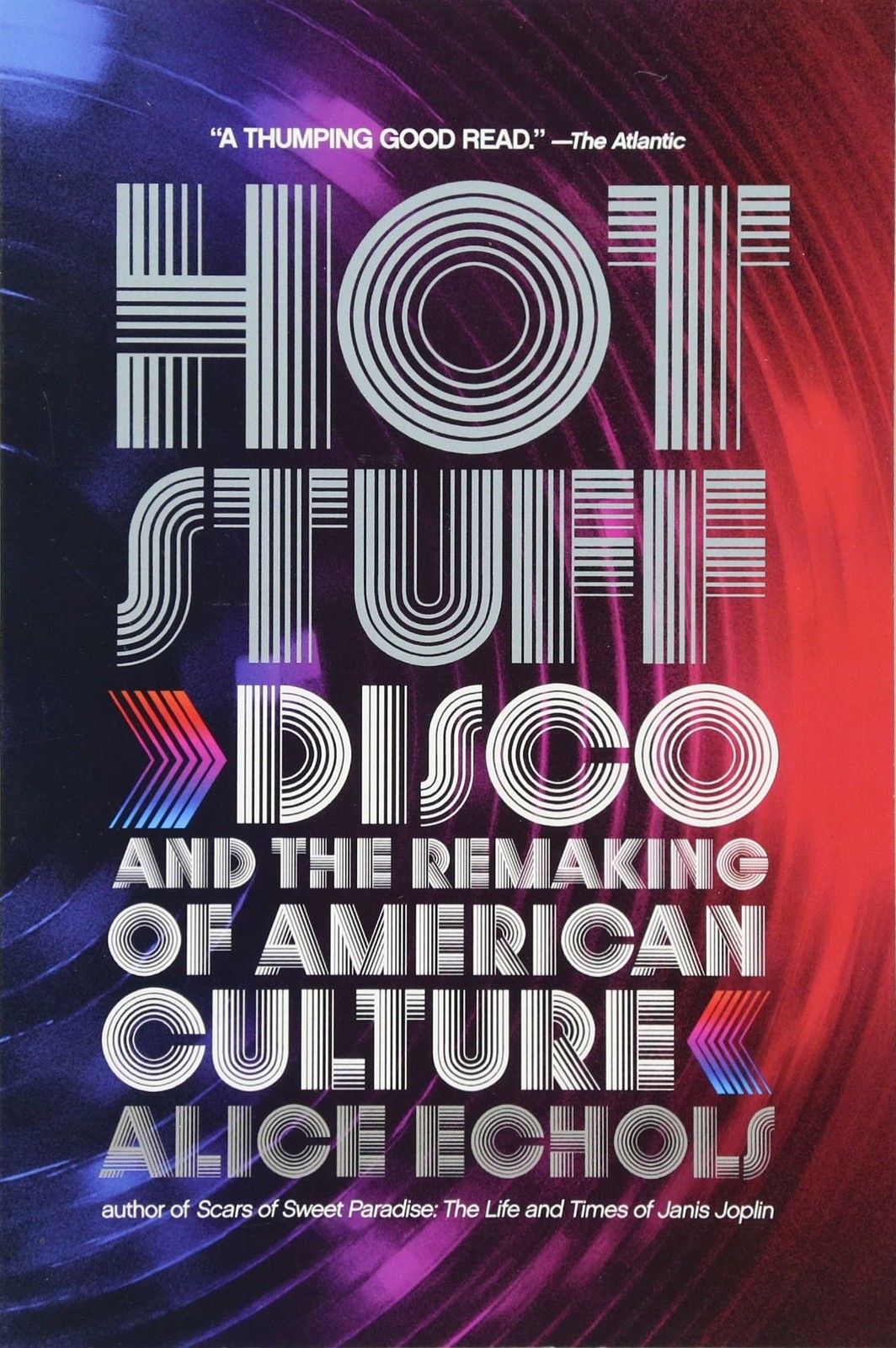
For a musical style once purported to suck and still decried as mindless, disco has spawned a lot of thoughtful writing, especially in the past decade. In 2004, Tim Lawrence published the lovingly researched Love Saves the Day, a history set primarily in gay 1970s New York clubs such as David Mancuso’s invite-only Loft, generally considered the music’s birthplace. A year later, Peter Shapiro brought out Turn the Beat Around, which was heavier on both social context—the “Rotting Apple” of ’70s New York—and discussion of the songs, some of which you’ve probably never heard of: one passage sifts through dozens of competing cover versions of Manu Dibango’s 1972 “Soul Makossa.”
Alice Echols’s zealous new Hot Stuff doesn’t retell the same story as much as it re-examines Lawrence’s and Shapiro’s now-familiar narrative, viewing disco through a significantly different lens. For one thing, Echols, the author of the Janis Joplin bio Scars of Sweet Paradise, approaches her topic as a lesbian (Lawrence and Shapiro are straight). Mostly, though, it’s that she experienced disco not in New York but in Ann Arbor, where she deejayed in clubs from 1979 to 1985. There, she gained a firsthand perspective on the culture that had little to do with the center of the action as Love and Turn tell it. She notes—after quoting Shapiro’s characterization of middle America’s “quintessential mainstream disco experience” as “hearing ‘Y.M.C.A.’ six times in one night at the Rainbow Room of the Holiday Inn in Cedar Rapids, Iowa”—that “research on the ‘mainstream’ disco experience simply has not been done, partly because of its diffuseness, but perhaps also because discographers are so intent upon legitimizing disco through its roots in the gay/queer underground.”
As she presents her alternate history, Echols offers persuasively argued feminist readings and even an intelligent analysis of Saturday Night Fever, a film that most disco aficionados prefer to ignore. She makes the case for Diana Ross’s wispy vocal style having every bit as much impact on disco singing (male and female) as the churchy belting typified by Martha Wash. “Disco contributed to the discourse of female pleasure,” Echols writes of the mid-’70s. “I don’t think one can overestimate the importance of this shift in which female desire—what women wanted—actually mattered culturally.” She also hits pay dirt when she correlates Sylvester’s classic “(You Make Me Feel) Mighty Real” with Aretha Franklin’s “(You Make Me Feel Like) A Natural Woman”—“right down to its appropriation of the parenthetical.” Aretha, Echols explains, “conjures up the history of black women’s sexual nullification and its reversal in the Black Power ‘60s,” while Sylvester summed up the new sexual freedoms the ’70s brought about for gay men: “With both records one hears nothing short of ‘freedom time.’”
The quality of Echols’s prose as well as her ideas makes her occasional slips in research all the more glaring: she refers a Detroit band called Slum Village Disco, but in fact the band’s name is Slum Village (they have recorded a song titled “Disco”). And “The Disco Song” was the working title of Blondie’s 1978 No. 1 “Heart of Glass,” not a later nickname. But that’s small stuff compared to her stimulating rethinking of well-trod terrain.
Michaelangelo Matos is a music columnist for The Stranger and the A.V. Club. He lives in Brooklyn.
